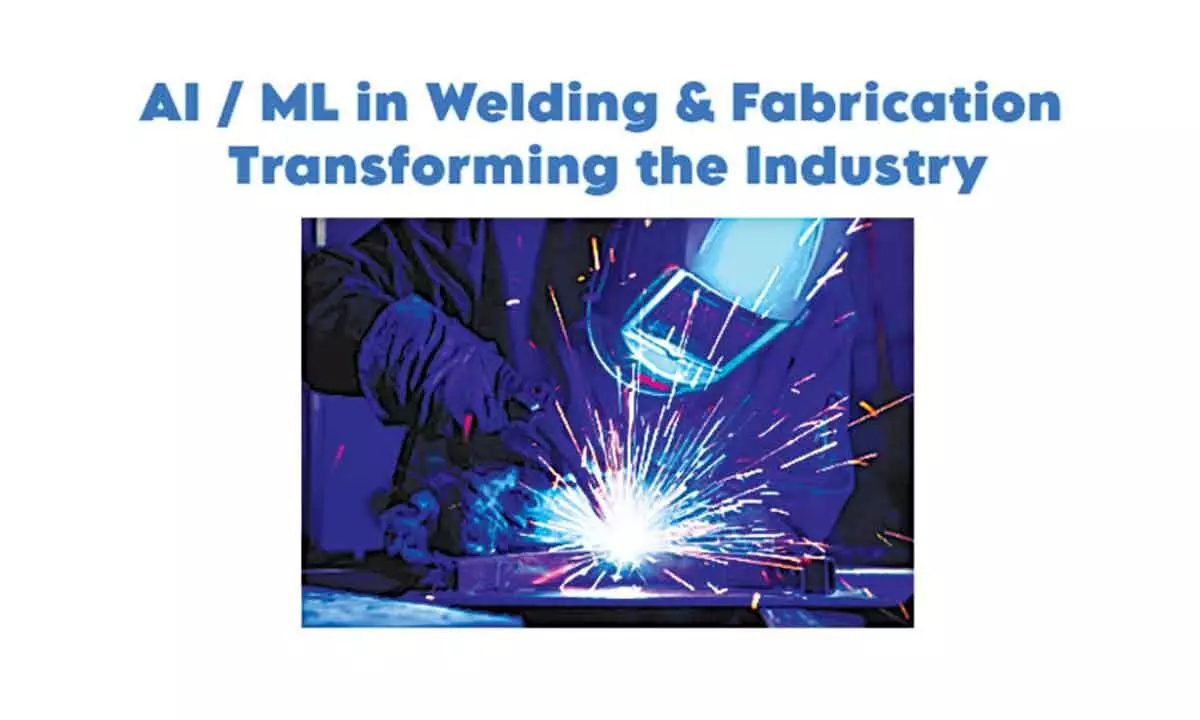RRCAT’s Centre of Excellence to take AI and ML-driven welding to the next level
TIG process theme meeting attracts over 150 delegates from research labs, academia and industry
image for illustrative purpose

Dr. IshniaChoudhary’s talk on ‘Essentiality of Workplace Ethics’ brought out the significance of human factors in delivering technologies and meeting the objectives of business organisations
Raja Ramanna Centre for Advanced Technology (RRCAT), an R&D unit of the Department of Atomic Energy (DAE), recently hosted a day-long theme meeting on recent advances in tungsten inert gas (TIG) welding in Indore. The theme meeting marks a novel initiative promulgated by AIC π-Hub to bring academia, research labs and industry on one platform so that the country’s research output can become useful to the tech-hungry industry. This effort can empower the industry to improve quality and productivity without spending much.
Scientists from research labs are always struggling with enormous challenges on application of material joining technologies for converting their cutting edge ideas into achievable products; therefore they might get good industrial partners or may convert this opportunity to enter into collaborations with the academia.
In his inaugural address, Dr. S.V.Nakhe, Director of the Centre, said, “The AIC π-Hub is playing a pivotal role in promoting innovation and transferring RRCAT developed technologies to local industries so that they can enhance their overall productivity and processes.”
Dr. C.P. Paul, Head of AIC π-Hub, briefed about its aims and objectives.
More than 150 delegates from research labs, academia and industry participated in the meeting. Subject experts Prof. SupriyoGanguly (Cranfield University, UK), Prof. M.Vasudevan (Indira Gandhi Centre for Atomic Research), Abhay Kumar (RRCAT), Dr.RenuGupa (L&T India, Mumbai), Prof. D.K.Dwivedi (IIT, Roorkee) and NimeshChinoy (SigmaWeld) delivered curated talks and engaged with audience in developing deeper understanding of the technologies.
One of the unique features of the event was a short talk delivered by Dr IshniaChoudhary (Insight Alchemy, Indore) on ‘Essentiality of Workplace Ethics’. This brought out the significance of human factors in delivering technologies and meeting the objectives of business organisations.
It has opened a new avenue of collaborations so that the technologies do not remain confined to the walls of academia and research labs. More such events are to be held so that MSMEs can benefit from the collective knowledge of the nation.
Apart from delving into the intricacies of the TIG process, the event also highlighted its manifold benefits for both sectors.
For the MSME sector, the event provided a comprehensive understanding of how implementing TIG welding techniques can significantly enhance productivity, quality and cost-effectiveness in their operations.
Meanwhile, RRCAT has proposed a Centre of Excellence for advance joining worth Rs. 100 crore.As per the proposal, the Union government wants to take AI and ML-driven welding to the next level.The proposal, which forms part of Amrit Kaal, has already been accepted at the DAE level.
Talking to Bizz Buzz on the sidelines of the event, Abhay Kumar, Head, Design & Manufacturing Technology Division, RRCAT, said, “RRCAT is helping three Indian industries with four collaborative incubations through AIC-p-Hub at RRCAT. They include a start-up Metal & Membrane where it is involved in development of full penetration TIG welding of porous pipes with solid pipes in materials like titanium and stainless steel. It is also serving big industries like Godrej with two such collaborations. Another company, Electronic Devices Worldwide Private Limited, is also benefitting from the knowledge created at the division.”
Kumar spoke about a novel addition to TIG welding technology that has been developed fully at RRCAT. He said that adding a tiny amount of nitrogen in the shield gas can immensely benefit stainless steel welds. It will improve fatigue, creep and corrosion resistance to offer substantial increase in the service life of the pressure equipment. Such small things cost almost nothing and will help MSMEs offer sustainability to the nation. He emphasised the need to make an ecosystem in which smaller industries work in close collaboration with national research labs and reap the benefits of their knowledge, expertise and experience. The research labs too need to be incentivised for their extra efforts and time as they don’t have the option of missing project deadlines.
Dr.Renu N. Gupta, head, project management & welding, L&T, Mumbai, said that when you see successful products like a rocket or a nuclear power plant, it’s very difficult for the common people to imagine about the technologies that are evolved, developed and deployed to build the crucial components.”

